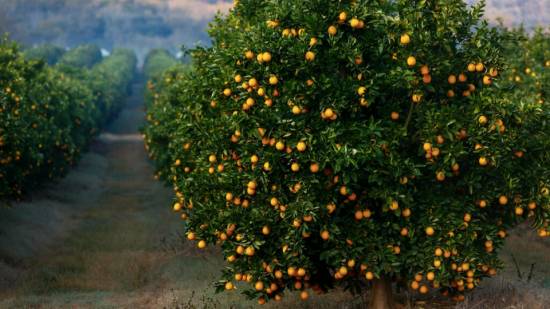Battle of oranges: Tonnes of South African fruit stranded at European ports
The EU introduced new plant and health safety requirements as ships were already at sea carrying hundreds of containers full of fruit to Europe, resulting in them being held up on arrival.
Millions of boxes of oranges have been spoiling in containers stranded at European ports as South Africa and the European Union lock horns in a dispute over import rules.
South Africa, the world's second largest exporter of fresh citrus after Spain, filed a complaint with the World Trade Organisation (WTO) last month after the EU introduced new plant and health safety requirements that orange farmers say threaten their survival.
The measures came into force in July as ships were already at sea carrying hundreds of containers full of South African fruit to Europe, resulting in them being held up on arrival, South Africa's Citrus Growers' Association (CGA) says.
The EU rules aim at tackling the potential spread of an insect called the false codling moth, a pest native to sub-Saharan Africa that feeds on fruits including oranges and grapefruits.
The new measures require South African farmers to apply extreme cold treatment to all Europe-bound oranges and keep the fruits at temperatures of two degrees Celsius (35 degrees Fahrenheit) or lower for 25 days.
But the CGA says this measure is unnecessary as the country already has its own, more targeted way of preventing infestation.
'Discriminatory' measure
In its WTO complaint, South Africa argued that the EU requirements were "not based on science", more restrictive than necessary and "discriminatory".
South African citrus growers say the requirement puts undue extra pressure on an industry already in dire straits.
"This is going to add a lot of costs... and at the moment, that is what no grower in the world can afford," said Hannes de Waal, who heads of the almost 100-year-old farm Sundays River Citrus.
De Waal, whose company has orange, clementine and lemon trees straddling 7,000 hectares near the southeastern coast city of Gqeberha, said revenues were already squeezed by high shipping and fertiliser costs.
Freight costs have rocketed since Covid-19 struck, and so has the price of fertilisers due to the Ukraine conflict — Russia being one of the world's largest producers.
Source: agencies


